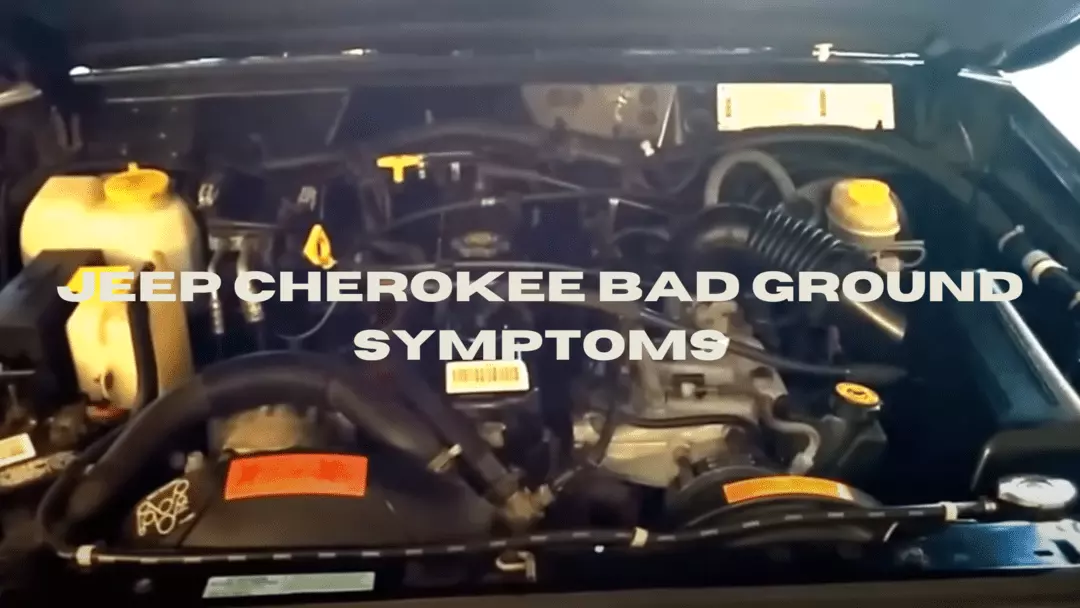The proper ground connection of the engine and the metal chassis of the Jeep is essential to ensure the proper function of the engine. Due to rust or corrosion, the negative terminal of the battery or ground cable goes bad, leading to several electrical issues in the system.
The problem starts when the owners can’t determine whether the bad ground is responsible for all these problems. If you have a Jeep Cherokee, we can realize how difficult it is for you to recognize the exact Jeep Cherokee bad ground symptoms.
Luckily it is fairly easy to figure out. The most apparent problems due to bad ground include a dead battery, low voltage, flickering light, engine starting problems, electrical device malfunction, and so on. Go on reading our comprehensive guide on how to diagnose these issues effectively.
7 Major Jeep Cherokee Bad Ground Symptoms With Easy Fixes
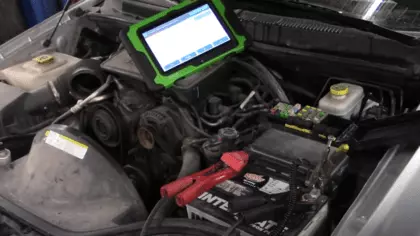
1. Starting Failure
Whenever there is a grounding issue in Jeep Cherokee, it will certainly fail to start. There are several reasons why the Jeep is refusing to start. Mainly it is related to the battery or other start-up components like the ignition switch, starter, or spark plug. Higher chances are these parts are damaged, dirty, or corroded.
Due to a bad ground connection, the solenoid valve fails. A defective solenoid valve leads to the starter motor won’t work as it fails to suck the necessary power voltage from the battery. That means when you turn the ignition key, the engine won’t start or crank and you may not hear any clicking sound from the engine.
The loose or corroded wiring connection between the battery and starter or issues with the starting circuit cause the starting issue.
How To Fix
- First off, inspect the ground cable and test it electrically. Touch one lead of the multimeter to the metal chassis and attach the other lead to the end of the ground wire. If the result shows negative, it’s a bet that the ground wire is bad and needs replacement.
- Check the battery of the Jeep to see whether it is getting the right voltage.
- Also, test the power going through the starter solenoid. First, test the starting circuits and replace the bad ones.
- Take a digital multi-meter (DMM) and check the internal continuity of the starter solenoid. If it reads out limits (OL), be sure the solenoid is faulty and you need to replace it. You can expect to pay about $400 and $500 to replace the bad starter solenoid.
- If needed, check the ignition switch, fuel pump, and spark plug as any of them could be damaged, or disconnected.
2. Defective Air Conditioning
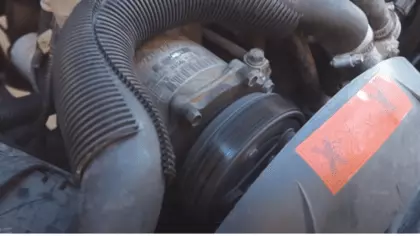
The most apparent cause that hinders the normal operation of the air conditioning system on the Jeep is the bad grounding wire. A higher possibility is the ground strap is in bad shape, damaged, or worn out. Due to the defection of the ground wire, there will be a communication error within the system, leading to your air conditioner stopping working.
Though it is one of the major reasons for the malfunction of the air conditions, not the last one. Other major reasons would be clogged cabin air filter, dirty condenser, evaporator, refrigerant leakage, compressor or blower motor failure.
How To Fix
- The first thing that you need to check the ground strap and replace the frayed or broken wires.
- If the fixing of the ground cable has been ruled out, inspect and clean out the clogged cable air filter, condenser, and evaporator.
- Check the refrigerant for any leakage and seal it with the right replacement component.
- In most cases, a broken compressor or a bad blower motor is the core reason for the bad AC system. We recommend contacting a professional to detect the actual faulty parts.
3. Low Voltage
The low voltage of the Jeep is one of the major reasons for bad grounding cable connections. Though there will be a power supply to the component, the voltage power will not be as strong to continue the normal functions. In most cases, the car won’t receive any power from the battery.
A dead or low battery is another main culprit behind this issue as it is not charged due to a faulty or loose ground strap.
How To Fix
Whatever the fact is, you need to test the battery electrically. To do so, take a voltage meter and connect the probes with each terminal of the battery.
If the reading is not showing around 12.6 volts, be sure it is dead and you need to replace it. Aside from the dead battery, don’t forget to check the ground strap to ensure it’s not damaged.
4. Dimming Or Flickering Lights
One of the most common symptoms of the bad ground system is dimming and flickering lighting. This happens due to voltage drop from the bad grounding system. There creates high resistance within this Jeep and the headlights start flickering or dimming.
Whenever you encounter the dim light of the Jeep, it is a clear warning sign, indicating the faulty circuit. In most cases, simply loosened ground is the responsive factor.
How To Fix
Inspect the ground wring circuit and fix up the loosened ones. Check for signs of rust or corrosion on the connection. Clean the contacts using sandpaper. Then do a conductivity test between the battery-negative terminal and the chassis/body of the vehicle. The reading should be very close to zero ohms.
If you find the cable damaged or worn out, you need to replace them. Most of the time, it is related to the weak battery or corrosion in the battery terminal, and due to that it can’t properly power the lights. So it is better to measure the voltage of the battery with a multimeter.
Also, look for loose electrical connections or corrosion on the battery terminals. Clean the terminal. If the cleaning doesn’t work, you need to replace the dead battery.
5. Non-operational Dash Gauge
If the ground connection of your Jeep Cherokee goes bad due to rust or corrosion, you will encounter several types of issues including the dash gauge failure. The digital dash or instrument cluster is a necessary element of the Jeep system that provides important information, essential for safe driving.
Anyway, behind a defective dash gauge, the bad grounding is one of the big suspects. But that’s not the last cause to blame. Other major reasons include blown fuses, loose connectors, bad sensors, stripped gearing, overloaded circuits or at times faulty instrument clusters is the culprit itself.
How To Fix
Inspect all the circuits or electrical connections to the grounding system. Fix the loosed one and replace the deteriorated one. If that doesn’t prove well, verify the fuse box, electrical connectors, and the speedometer sensor. Ensure all the components are in good working order.
Inspect the instrument clusters for any defection. If you are inclined to technical facts, it’s better to contact a professional to do the best task for you.
6. Damaged Visible Ground Cable
When the term is about the malfunctioning of the ground system in Jeep Cherokee, it is quite obvious that the ground strap is in bad shape. You can easily visualize this deterioration, a sign that the grounding system is not operating well. The best chances are any of the cables are inspected from any portion or completely damaged.
How To Fix
Inspect each of the circuits and cables from the Jeep ground. Look for any signs of physical damage. Replace the bad cable with the new one.
7. Radio Interference
If there are faults in the ground system in your Jeep Cherokee, you may find that the stereo starts to get noisy after long driving. Basically, there is a braided ground strap that is connected to the radio body from behind.
Now if the antenna cable and the wire harness from the ground are damaged, the stereo either stops operating or starts creating horrible sounds.
How To Fix
Check the stereo cables to ensure that it is properly grounded and functioning correctly. You can do a test light across the radio power leads. If you find the power, be sure it is grounded properly.
Also, check for the power at the fuse. Replace the blown fuse. But if there is power, signs of bad wiring between the fuse and the radio. In addition, due to a bad amplifier, you will hear noise from your Jeep’s radio. Anyway, replace the bad radio or defective leads with the new ones and make stable contact with the plug.
How To Test Ground Wire On Jeep Cherokee?
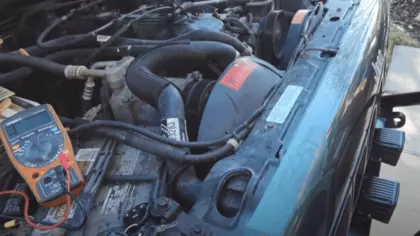
Before moving to the replacement of the ground wire, it will be worth testing the wire to determine whether it is defective or not. Plus, it will help to determine whether the circuit is open or closed.
The testing procedures of the ground wire are quite straightforward. Let’s walk you through a few phases to test the ground.
- Phase #1– First, take a digital multimeter and set its volts read to ohms.
- Phase #2- Now locate the battery and find the negative cable terminal for testing.
- Phase #3- Attach one probe of the multimeter to the negative (-) terminal of the battery and the other end to the metal part of the Jeep’s chassis.
- Phase #4- A well-working ground cable will give the reading closest to Zero. If you have a reading higher than five, be sure the ground wire is not in well working condition.
- Phase #5- Here you can attach a bonding strap or cable between the panel and accessories where the resistance is highest. Otherwise, you need to replace the broken ground wire with the new one.
How To Replace A Ground Wire (Negative Battery Cable) In Jeep Cherokee?
Well! When you are confirmed about the defective ground wire of your Jeep, the only solution is the replace the bad cable with the new one.
Wondering the effective processes? Go through the below step-by-step to make the replacement tasks easier like professionals:
Step 1: Locate The Ground Wire
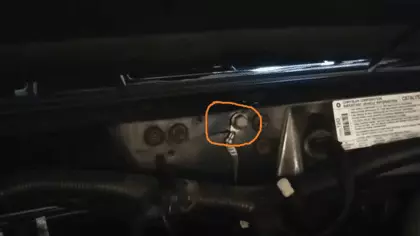
As for the first step, you have to determine the ground wire of your Jeep. It is basically the negative cable of the battery of your vehicle. Find out the battery from the engine compartment. Then remove the cover of the battery to inspect the cables.
Now, locate the negative battery terminal having a minus (-) sign next to it while the other one has a plus (+) sign indicating the positive terminal.
Step 2: Unplug The Negative Cable
Now it’s time to disconnect the negative wire or ground wire from the connection. To do so, you will need a wrench of about 8mm. Loosen the nuts and bolts that hold the negative cable with the wrench.
Once the connection is loosened, simply wiggle the terminal and pull it up to remove the cable from the battery post. If it is stuck in place and being trouble for you to detach, spray the connection with the WD-40 and let it sit for a while.
Step 3: Remove The Positive Cable
At this part, you may detach the positive cable because the negative wires can’t be reached unless you remove the complete battery terminal. In that case, disconnecting both cables is quite needed. Go through the above steps.
Step 4: Take The Battery Out
Now, unscrew the attached screws that are holding the battery in place. Once done, remove the battery from the engine and set it aside.
Step 5: Disconnect The Bad Strap
In this step, locate the bad ground strap of the battery. Take a wrench and loosen the bolt that holds the ground strap in place. Remove the defective strap.
Step 6: Install The New Ground Wire
Now take the new wire and assemble it reversing the above steps. After installing, ensure a snug connection of the wires with the terminal.
Frequently Asked Questions (FAQs)
1. Does bad ground cause high voltage?
Yes! A poor sensor or computer ground causes high voltages than normal. This is because it prevents the component to pull the voltage that is near zero from the ground. Even at times, it leads to fault trouble codes.
2. What happens if I don’t fix the bad ground?
If you are ignoring the bad ground of your vehicle, it may lead to major defection on the other components like dimming lights, bad dash gauges, starting issues, and so on. It prevents the battery from being charged properly and the computer to receive the necessary signals.
3. Can bad ground cause overcharging?
Yes! Due to a bad ground, there creates an open circuit on the battery terminal which leads to it being overcharged. It is quite possible that the battery will reach high voltage.
4. Will the poor ground cause the alternators to overcharge?
Yes! Poor ground causes an alternator to overcharge. Due to bad ground, the battery loses its connection and is triggered to a false charge level. This creates an open circuit that leads to the alternator room overcharging.
End Remarks!
Well! That’s all from us here. Hope that there should be no queries left over on how to figure out the Jeep Cherokee bad ground symptoms. After thoroughly reading our guide, it will be quite easier for you to diagnose the electrical issues due to the bad ground of the Jeep.
To avoid these problems, it will be wiser to go through a proper check of the quality of the ground connection in your Jeep. Head to a professional mechanic if repairing or replacing any of the faulty parts seems difficult for you!

Hello there, this is Thomas Byrd. I am a professional car mechanic who leads a team of junior mechanics in a repair and restoration shop. In the beginning, I used to work for a jeep service center as a basic worker. From there I keep learning, changed my job 2 times and now I am a professional who leads a group of mechanics. Though a have expertise in the jeep, I know very well about all types of cars. To share my knowledge and skills with others I have created this blog website. Whenever I get free time from work I give my time to my blog.
